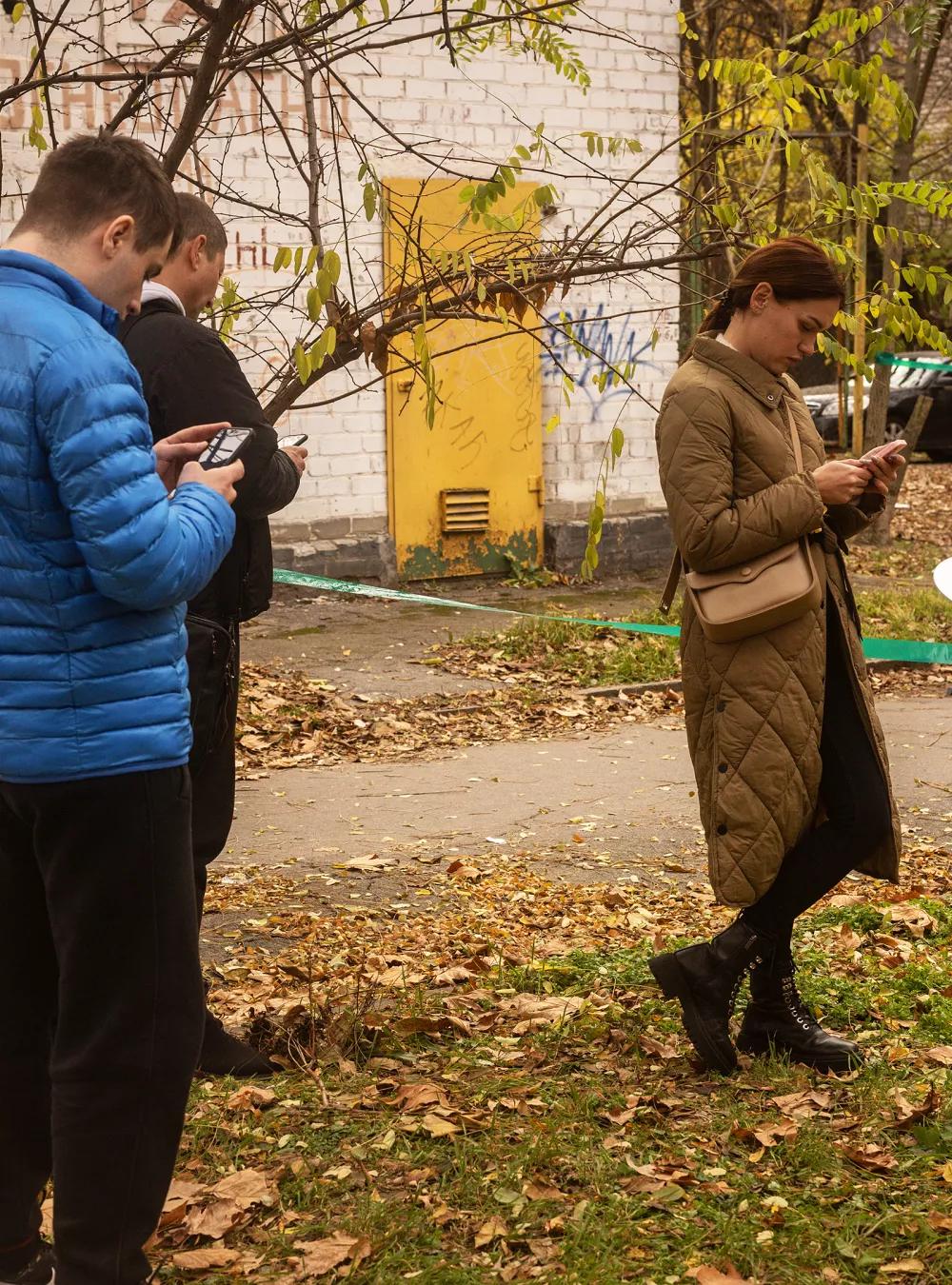A year after the Russian invasion of Ukraine, MITRE efforts to develop and deliver needed technology and relief endure, and grow, helping the people on the ground who need it most.

A Quick-Response Initiative Brings a Year of MITRE Support to Ukraine
The Ukrainian Red Cross helps displaced Ukrainians connect with their families in the war-torn country, thanks to MITRE technology that makes safe and reliable communication possible.
When Russian forces invaded Ukraine, SpaceX sent Starlink satellite internet kits to counter Russian attacks disrupting the country’s internet service. But Starlink technology needs a reliable power source and secure connection to the satellite constellation that processes communications signals. The designers didn’t intend it to be portable or to function in a war zone. Humanitarian and aid-group relief workers in Ukraine needed a system with added resilience.
Enter MITRE. Engineer Joseph Roth and team designed the Starlink Advantage kit to provide energy-independent, reliable access that incorporates cybersecurity, as well as protection from physical targeting. A tote can hold all the components: a terminal providing 100+ mbps internet speed, a VPN-secured Wi-Fi router, a battery-powered/solar panel generator, a laptop, a car adapter, and technology to protect the network from missile strikes.
This is our people at their best: quickly, creatively acting to solve problems for a safer world.
Starlink Advantage emerged from MITRE’s Quick Ukraine Response Initiative (QURI), which crowdsourced relief and support ideas from our experts eager to help victims of the invasion. During an all-employee update in early 2022, engineer Jeff Vodov, a Ukraine native, voiced the sentiments of many colleagues: What can we do?
That question and the executive advocacy that followed led to QURI. In less than two weeks, employees submitted more than 100 proposals for capabilities that would meet war-zone needs. The 11 most promising ideas received funding and direction to “make good things happen.”
“All projects reached minimal viable product status within 90 days of funding,” says Karen Hathaway Viani, one of the initiative’s leaders. Participants ran development efforts while engaging potential users.
A Grass Roots Response and Leadership Support Yield Real-World Impact
“I’m impressed with the impact many of these initiatives have made—and of the potential several others hold for the future,” says Keoki Jackson, senior vice president and general manager of MITRE National Security. “We’re building on our work and continuing to look for other applications.”
The Starlink Advantage initiative exemplifies the potential growth Jackson praises. By February, Roth and team delivered the first kits for shipment to the Ukrainian Red Cross, with more on the way. Additionally, we licensed the technology to the Ukrainian Red Cross for wider use and are exploring other partnerships to assist with the humanitarian crisis.
MITRE successfully deployed or transitioned to partners several other capabilities, including:
The Field-Expedient Denial Bundle—These inexpensive leave-behind devices deny and disrupt adversary technical systems. One disrupts Russian handheld radios and broadcasts random audio messages to increase the fog of war. Another disrupts Russian counter-UAS (uncrewed aircraft system) capabilities to protect Ukrainian operators.
MITRE Engage™ for Cyber Threat Intelligence Elicitation—This capability provides real-time cyber threat intelligence, helping defenders expose adversaries on a network, affect malicious operations, and elicit intelligence. The Engage team looked at adversary wartime playbooks to protect Ukrainian networks increasingly vulnerable to advanced persistent threat activity.
The effort increases the cost and reduces the value of adversary operations.
CAESAR, the Crowd-sourced Atrocities Evidence Synthesis and Analysis Repository, documents, preserves, analyzes, and shares war crime evidence. Ubiquitous cell phones and social media platforms create a new opportunity to securely collect, report, and share digital evidence. MITRE partnered with a premier U.S. human rights organization to support a whole-of-nation effort addressing global atrocities and international human rights violations.
Safeguarding Humanitarian Workers provides cybersecurity risk assessment and remediation that protects dozens of humanitarian organizations’ data. Our team provided solutions for data security and developed a strategic roadmap to optimize data collection, curation, and reporting.
This effort quickly resulted in a 90% decrease in Russian cyberattacks. It also enabled a non-governmental organization to report on nearly 500 Russian attacks against Ukrainian healthcare workers and facilities.
Red Notice Reporting on Sanctions counters Russian attempts to avoid sanctions by hiding through subsidiaries. The MITRE team uses multifactor analytics to identify subsidiaries and shareholders of sanctioned Russian entities. This has identified vessels and aircraft activity, as well as other channels that circumvent sanctions. We produced an Interpol Red Notice Report for the U.S. government and supported several active investigations and target packages.
Driving Rapid Development and Deployment When Lives Are at Stake
QURI projects address national security, humanitarian, and communications infrastructure needs, and “they truly represent an all-of-MITRE response,” Viani says. Moreover, the effort leverages our ability to yield quick-turn operational capabilities and put them into the hands of those who need them most.
With the war still devastating Ukraine, we continue to develop and refine QURI capabilities, both within MITRE and in collaboration with partners and end-users.
“I’m tremendously proud of the difference these initiatives have made for the people of Ukraine,” Jackson says. “This truly shows our people at their best: quickly and creatively taking action to solve problems for a safer world.”
Join our community of innovators, learners, knowledge-sharers, and risk-takers. View our Job Openings.